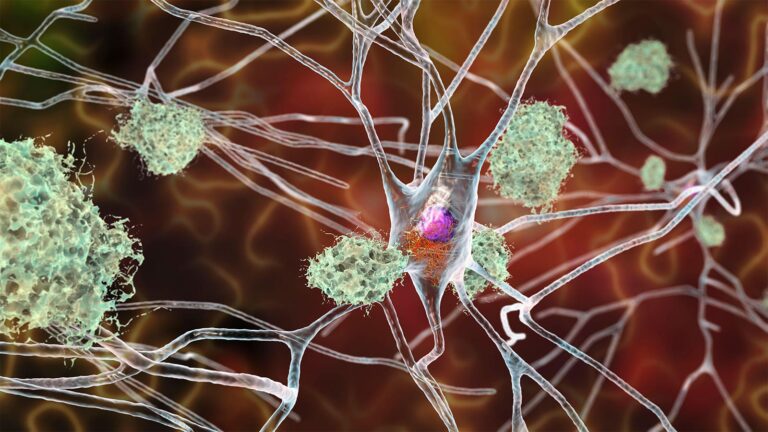Recent clinical trials suggest that it may slow cognitive decline in Alzheimer's disease and other dementias in some at-risk older adults.
For example, the ACHIEVE study reported that hearing aids reduced the rate of cognitive decline by 48% over three years in older adults at high risk for dementia. Additionally, in a randomized controlled trial of people with mild cognitive impairment and self-reported memory problems, tai chi's improved cognitive function was associated with improved overall cognitive scores.
“Two-thirds of Americans now have at least one major risk factor for dementia,” said Dr. Heather Snyder of the Alzheimer's Association of Chicago.
“The need for effective risk mitigation strategies to support all communities continues to grow,” Snyder said. “At this rate, the number of Americans with Alzheimer's disease could more than double by mid-century.”
The 2015 FINGER study in Finland was the first randomized controlled trial to show that it is possible to slow cognitive decline using a multidomain lifestyle intervention.
In the United States, the POINTER study is evaluating multiple methods to protect cognitive function in 2,000 at-risk older adults. “Clinical trial recruitment was successfully completed in March 2023,” Snyder said. “This study is scheduled to begin reporting results in summer 2025.”
“US POINTER's community-based team recruited nearly 30% of participants from communities traditionally underrepresented in research, including racial and ethnic minorities and people from rural areas. ” she added.
New clinical trial data
According to a 2020 report, approximately 40% of dementia cases could be prevented or delayed by modifying 12 risk factors. lancet Committee on Dementia Prevention, Intervention and Care.
Over the past year, several trials have shown that lifestyle interventions, particularly those involving exercise and hearing aids, may delay the onset of dementia. Two trials combining exercise and cognitive components, including a study on how Tai Chi boosts cognitive function in older adults at risk of dementia, Annals of Internal Medicine.
“The study shows that both physical and mental activity can reduce age-related cognitive decline and dual-task activity,” said study co-author Dr. Peter Harmer. “However, a combination of physical and mental challenges may be more effective than either alone.” , of the Oregon Research Institute in Eugene.
Cognitively enhanced tai chi is designed to synergistically stimulate neuroplasticity, Harmer points out. This plan includes an emphasis on performing properly despite mental or motor challenges, following instructions that require recalling names and detailed steps, and distinguishing between correct and incorrect instructions. It was included.
In this study, older adults with mild cognitive impairment or self-reported memory concerns were randomly assigned to perform stretching, standard tai chi, or cognitively enhanced tai chi for one hour semi-weekly for 24 weeks. did. The cognitively enhanced Tai Chi group outperformed the other groups in improving both global cognitive scores and dual-task performance while walking, and the effects persisted after 48 weeks.
The SYNERGIC exam is JAMA network open, took a different approach by combining physical exercise and cognitive training. SYNERGIC randomized older adults with mild cognitive impairment to 20 weeks of physical exercise with or without cognitive training and vitamin D supplementation.
Overall, subjects who underwent sequential aerobic exercise and computer-based cognitive training improved cognition, but some results were inconsistent.
Manuel Montero-Odasso, MD, of the Parkwood Institute in London, Ontario, and his co-authors found that the effects of the multidomain intervention were greater than the improvements caused by exercise alone, and that vitamin D supplementation did not have a significant effect. reported. In some arms of the trial, improvements in cognitive function decreased slightly after 12 months but did not return to baseline levels.
Another intervention that showed promise was the use of hearing aids. Frank Lin, M.D., of Johns Hopkins University in Baltimore, and colleagues reporting the ACHIEVE findings suggest that hearing loss can be treated later in life, reducing the risk of cognitive decline and dementia. He pointed out that this is an important goal.On trial lancet.
In ACHIEVE, participants were assigned to one of two interventions: hearing aids or a health education program. Both groups were followed up every six months, and cognitive tests were administered annually for three years.
The study's main analysis found no difference in the rate of change in cognitive function between the hearing aid and education groups. However, in a prespecified analysis of participants at high risk for future dementia, those assigned to wear hearing aids experienced a decline in cognitive function compared to those who received health education. It decreased in 3 years.
Policies to reduce cognitive decline
Research on risk factors for Alzheimer's disease and dementia is evolving; lancet Gil Livingstone, MD, a committee research fellow at University College London in the UK, is optimistic that policymakers will continue to use new insights to reduce global cognitive decline.
Livingston noted that since 2020, several countries have taken steps to address modifiable risk factors. “U.S. policy has changed and many countries and the World Health Organization have issued new policy documents,” she said.
In the United States, the 2023 update to the National Alzheimer's Disease Project Act includes new risk mitigation strategies, Livingston noted. CDC also expanded its Healthy Brain Initiative program in partnership with state and local health officials.
It has been updated lancet Mr Livingstone said the committee's report on dementia was under consideration and should be published later this year.
disclosure
Snyder had no conflicts of interest.
Mr. Harmer reported no conflicts of interest.
Livingston had no conflicts of interest.


